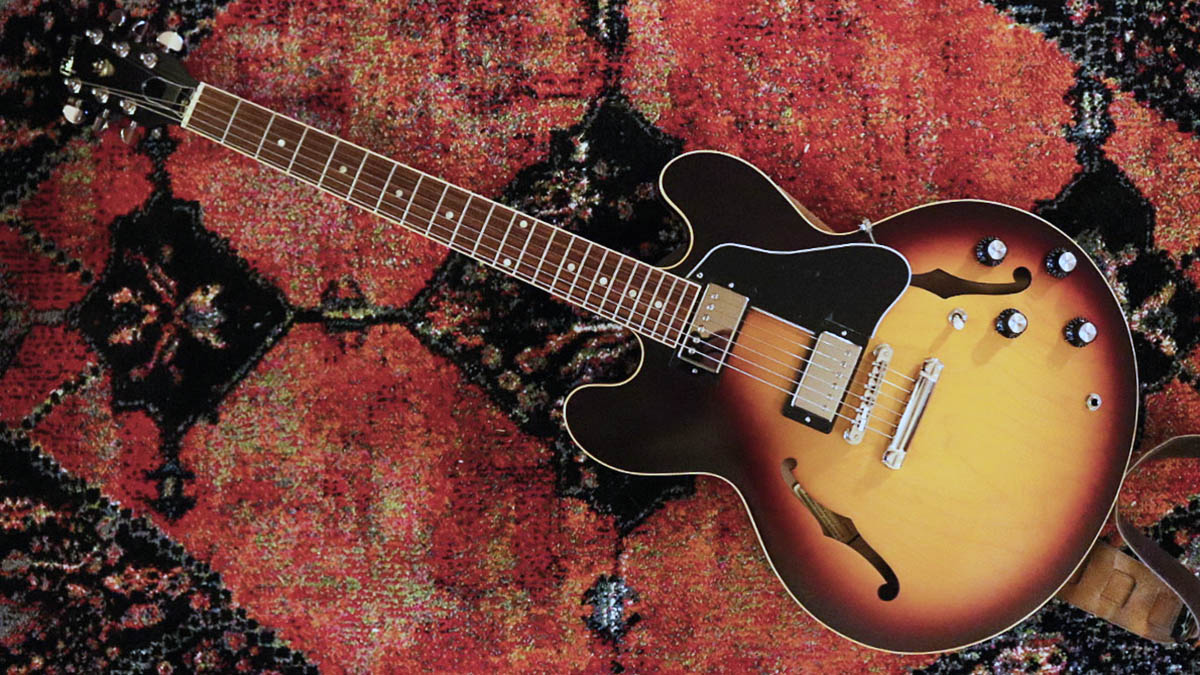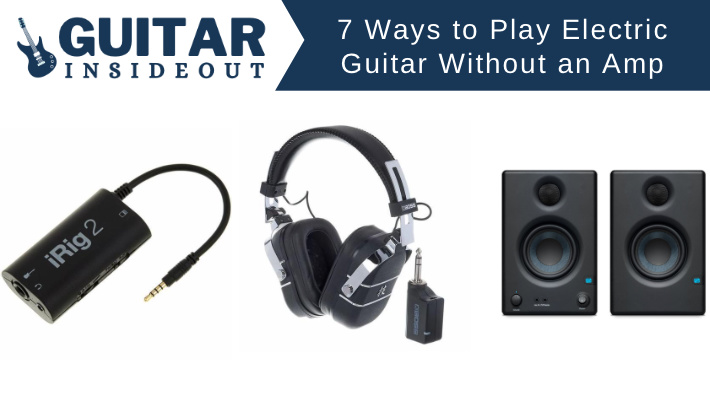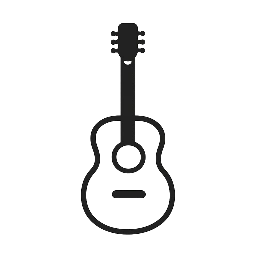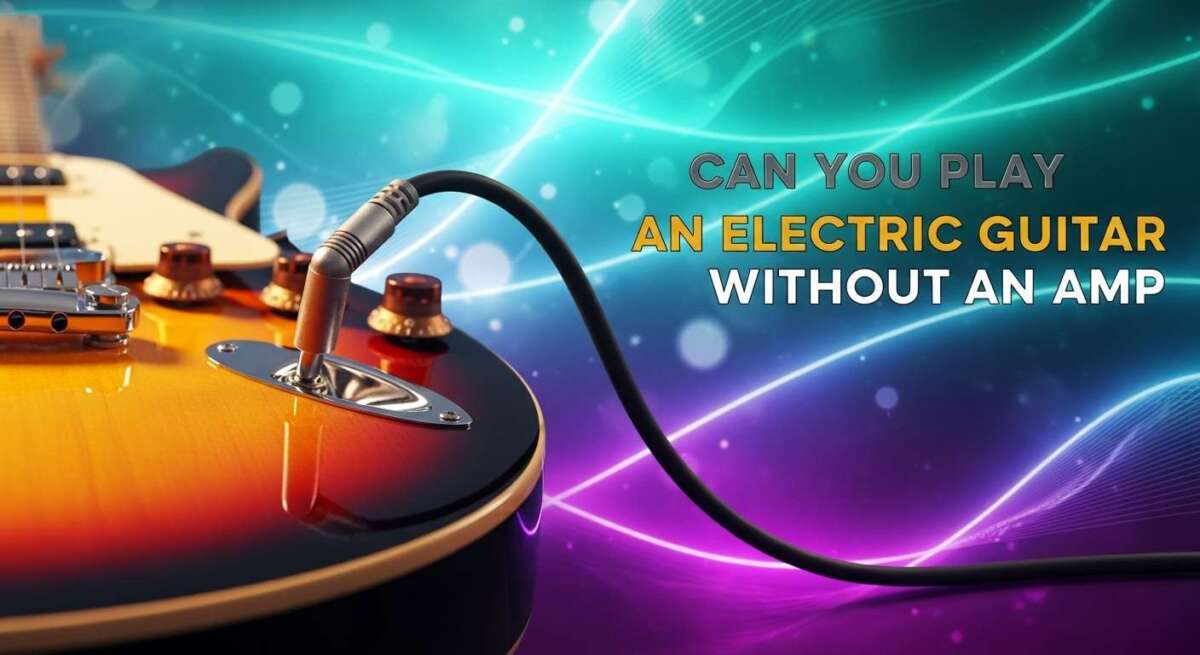Can you play an electric guitar without an amp? The short answer is yes—but it’s not quite that simple.
If you’ve ever picked up an electric guitar and wondered how it sounds on its own, you might have noticed it’s very quiet and lacks the powerful tone you expect. But does that mean you’re stuck needing an amp every time you want to play?
Not at all. Whether you’re practicing late at night, learning new chords, or just want to strum without the hassle of cables and gear, there are ways to make your electric guitar work without an amplifier. Keep reading, and you’ll discover practical tips and surprising tricks that let you enjoy your guitar anytime, anywhere—even without an amp.
Playing Electric Guitar Unplugged
Playing an electric guitar unplugged offers a unique experience. It allows players to connect with their instrument in a raw and direct way. Although electric guitars are designed to be used with amplifiers, you can still play them without one. This section explores what that sounds like and what to expect.
Sound Characteristics Without Amplification
Electric guitars produce a very quiet sound without an amp. The tone is thin and lacks the warmth that amplification provides. Notes may sound flat or dull compared to an amplified signal. The pickups capture string vibrations but without power, the sound is weak. Players can still hear the basic pitch and rhythm clearly.
Volume Limitations
Volume is the biggest limitation of playing unplugged. The guitar’s sound is soft and cannot fill a large room. This makes it hard to play with others without amplification. Practicing alone works fine, but for performances, amps are necessary. The quiet sound limits dynamic expression and impact.
Natural Resonance Of Hollow-body Guitars
Hollow-body electric guitars offer better unplugged sound. Their hollow design allows natural resonance and projection. This creates a fuller, richer tone compared to solid-body guitars. Acoustic qualities shine through, making them easier to play without an amp. Many jazz and blues players enjoy this feature for unplugged sessions.
Silent Practice Benefits
Practicing electric guitar silently offers many benefits. It allows players to improve skills without loud sound. This method suits apartment living and late-night sessions. Silent practice helps focus on details hard to notice with loud amps. Players can develop better technique and precision quietly. Here are key benefits of silent practice.
Reducing Noise For Neighbors And Family
Playing without an amp keeps noise levels very low. Neighbors will not be disturbed by loud guitar sounds. Family members can enjoy peace while you practice. This makes practicing more respectful in shared spaces. Silent practice prevents conflicts about noise and timing. It creates a calm environment for everyone at home.
Focusing On Fingerwork And Technique
Quiet playing helps concentrate on finger movements and positioning. Without loud sound, you can hear finger pressure and string contact better. This focus improves accuracy and speed over time. Small mistakes in fingerwork become easier to spot. Practicing silently builds a strong foundation for all skill levels.
Identifying Playing Flaws
Silent practice reveals subtle flaws in playing style. You can detect muted notes and weak finger pressure easily. This awareness allows quick correction of bad habits. Quiet sessions make it simpler to track progress clearly. Identifying flaws early leads to faster improvement and cleaner sound.
Alternative Sound Solutions
Playing an electric guitar without a traditional amplifier is possible with various alternative sound solutions. These options help produce clear and rich tones without bulky amps. They are ideal for practice, recording, or casual playing. Exploring these methods can expand your playing experience beyond the usual setup.
Using Audio Interfaces With Computers
Audio interfaces connect your electric guitar directly to a computer. They convert your guitar’s signal into digital form for software to process. Many guitar apps simulate amp sounds and effects effectively. This setup offers flexibility for recording and practicing silently. It also provides access to many sounds without extra gear.
Connecting To Bluetooth Speakers
Bluetooth speakers offer a wireless way to amplify your guitar’s sound. Pairing your guitar with a Bluetooth receiver or adapter allows you to play without cables. While they may lack the power of an amp, they are convenient and portable. This method suits casual playing and small gatherings well.
Portable Amplification Options
Portable amps are small, battery-powered devices made for on-the-go use. They deliver better sound quality than Bluetooth speakers alone. Many models include built-in effects and headphone outputs. These amps are perfect for practice sessions outside your home. They combine convenience with good tone in a compact size.

Credit: www.youtube.com
Tech Tips For Better Unplugged Play
Playing an electric guitar without an amp can be a unique experience. It demands some adjustments to get the best sound and feel. These tech tips help improve your unplugged play. They focus on making your guitar easier to play and sounding better. Even without an amp, your electric guitar can still shine.
Adjusting Guitar Setup For Playability
Lower the string height to reduce finger strain. This makes playing chords and notes smoother. Check the neck relief and adjust the truss rod if needed. Make sure the strings don’t buzz when played. Proper setup helps you play longer with less fatigue.
Choosing Suitable Strings
Use lighter gauge strings for easier finger movement. They need less pressure to press down. Lighter strings also produce a clearer sound unplugged. Avoid heavy strings as they require more force and sound duller without an amp.
Optimizing Guitar Tone Without Amp
Use the guitar’s tone knobs to shape your sound. Rolling off the tone can reduce harshness. Experiment with pickup selection for different tones. Neck pickups give a warmer sound, while bridge pickups are brighter. Play near the guitar’s body for richer acoustic tones.
Recording Electric Guitar Without An Amp
Recording an electric guitar without an amp is more common than ever. Musicians can capture clean, clear guitar sounds without loud equipment. This method saves space and reduces noise. It also allows easy editing of tones in the digital world.
Many guitarists use direct recording methods or software to get the best sound. These tools help simulate amp effects and provide versatile options. Here are some key ways to record an electric guitar without an amp.
Direct Input Recording Techniques
Direct input (DI) recording means plugging the guitar straight into an audio interface. This method records the pure electric signal from the guitar. No amp or microphone is needed. DI captures a clean and clear tone.
To use DI, connect the guitar cable to an interface or DI box. The interface sends the signal to your computer. You can then add effects or amp simulations with software. DI is simple, quiet, and flexible for many styles.
Using Amp Simulation Software
Amp simulation software creates the sound of an amplifier on your computer. It mimics different amp types and speaker cabinets. This software lets you shape your guitar tone without a physical amp.
Popular programs include AmpliTube, Guitar Rig, and Bias FX. They offer presets and custom settings. You can use pedals, distortion, reverb, and more. Amp sims are ideal for recording and practicing silently.
Home Studio Setup Essentials
Recording without an amp requires a few key tools. An audio interface is essential to connect your guitar to your computer. Good quality cables ensure a clean signal.
A digital audio workstation (DAW) is needed to record and edit your tracks. Many DAWs come with built-in amp sims and effects. Headphones or studio monitors help you hear your sound clearly.
With this setup, you can record electric guitar at home with ease. It is cost-effective and produces professional results. This method suits beginners and experienced players alike.

Credit: theguitarpages.com
When To Use An Amplifier
An amplifier plays a key role in shaping electric guitar sound. Knowing when to use an amp helps you get the most from your playing experience. Some situations demand the power and tone only an amplifier can provide. Other times, playing without one might be fine.
Live Performance Considerations
On stage, an amp is almost always necessary. It makes your guitar sound loud enough for the audience. Small rooms might allow lower volume. Large venues need more power to reach every listener. An amp also helps control your sound in noisy environments. Without it, your music can get lost.
Achieving Signature Electric Guitar Sounds
Many classic electric guitar tones depend on an amplifier. Effects like distortion, overdrive, and reverb come from the amp’s settings. Playing without an amp means missing these unique sounds. To get the style of famous guitarists, use an amplifier. It shapes your tone and adds character to your music.
Balancing Volume And Tone
Amplifiers let you adjust both volume and tone easily. You can make your sound softer or louder to suit any setting. Tone controls on amps help fine-tune bass, mid, and treble frequencies. This balance is hard to achieve without an amp. It ensures your guitar fits well with other instruments. Using an amp gives more control over your overall sound.

Credit: www.guitarinsideout.com
Frequently Asked Questions
Can I Directly Play Electric Guitar?
Yes, you can play an electric guitar directly, but the sound will be very quiet without an amplifier.
Do You Need An Amp For Electric Guitar?
An amp is essential for electric guitar to produce loud, clear sound. Without it, the guitar sounds very quiet. You can practice unplugged quietly, but an amplifier enhances tone and volume for performances.
Do Electric Guitars Sound Bad Without An Amp?
Electric guitars sound very quiet and thin without an amp. Amplifiers create the full, rich tone electric guitars are known for.
Can You Play An Electric Guitar Unplugged?
Yes, you can play an electric guitar unplugged, but the sound will be very quiet. Use an amp for full volume and tone. Unplugged playing suits silent practice or technique focus.
Conclusion
Playing an electric guitar without an amp is possible but limited. The guitar sounds very quiet and lacks the typical electric tone. You can practice finger movements and chord shapes silently. This method suits beginners or quiet practice times. To enjoy full sound, an amp or alternative device is best.
Small, portable options make playing easier anywhere. Experiment with headphone amps or digital interfaces for better tone. Playing unplugged helps improve skills without distractions. Keep exploring what works best for your style and needs.

Senior Music Reviewer
Alex Carter is a seasoned music reviewer with over a decade of experience in the world of sound and instruments. Passionate about helping musicians and enthusiasts make informed choices, he brings sharp insights and in-depth knowledge to every review. From classical instruments to modern gear, Alex combines technical expertise with a love for music to deliver content that resonates with readers.
As a Senior Music Reviewer and expert author on Tuneluma.com, Alex is dedicated to sharing honest evaluations, practical advice, and thoughtful commentary to guide readers in their musical journey.


Leave a Reply